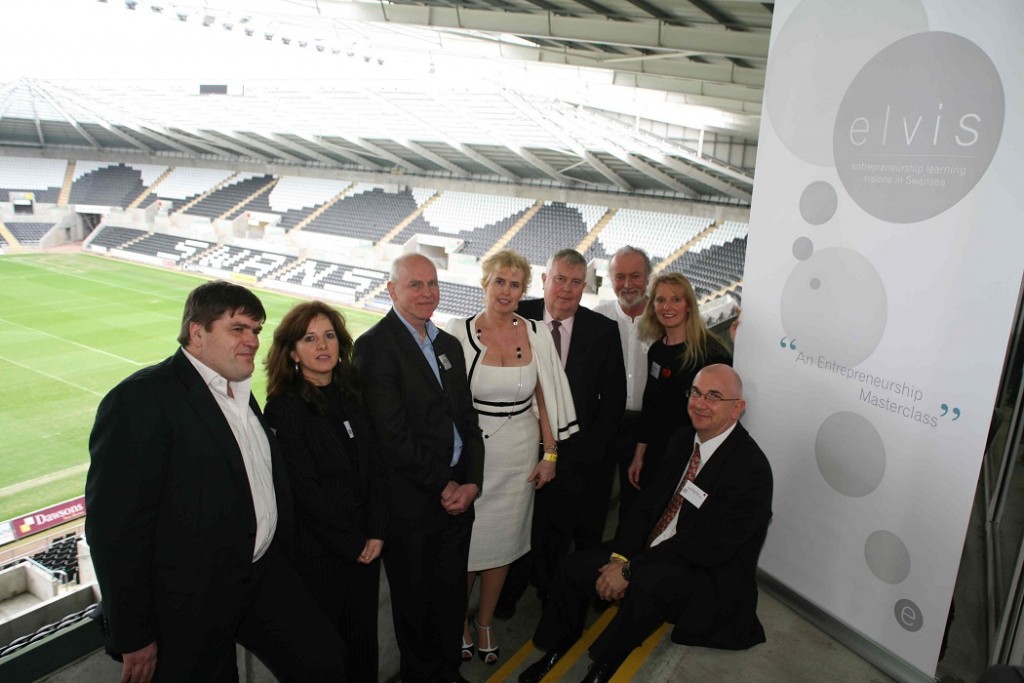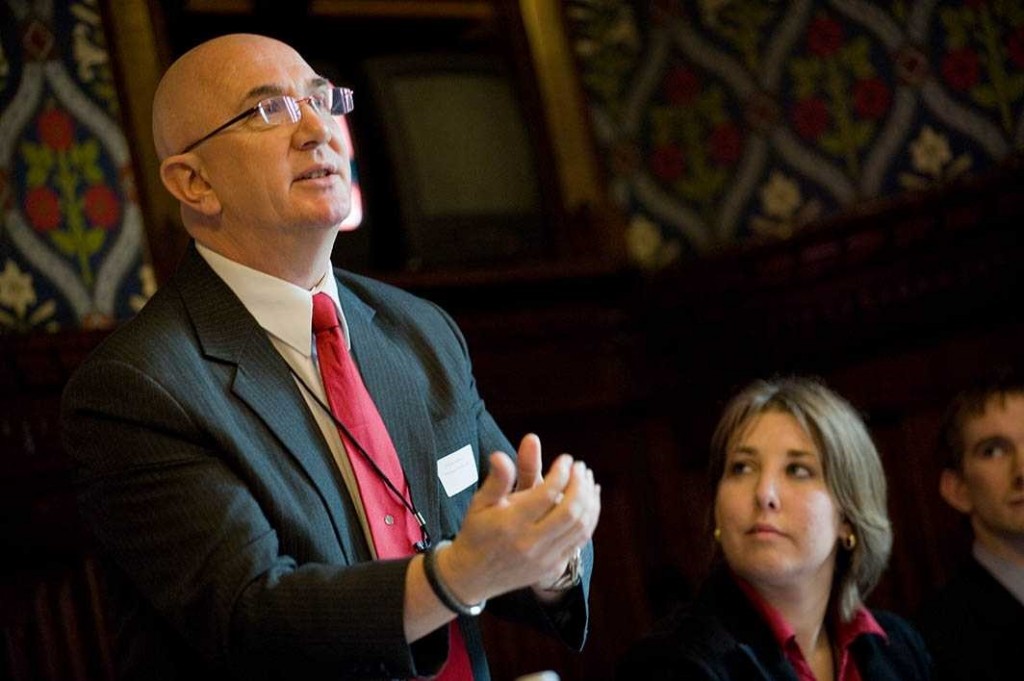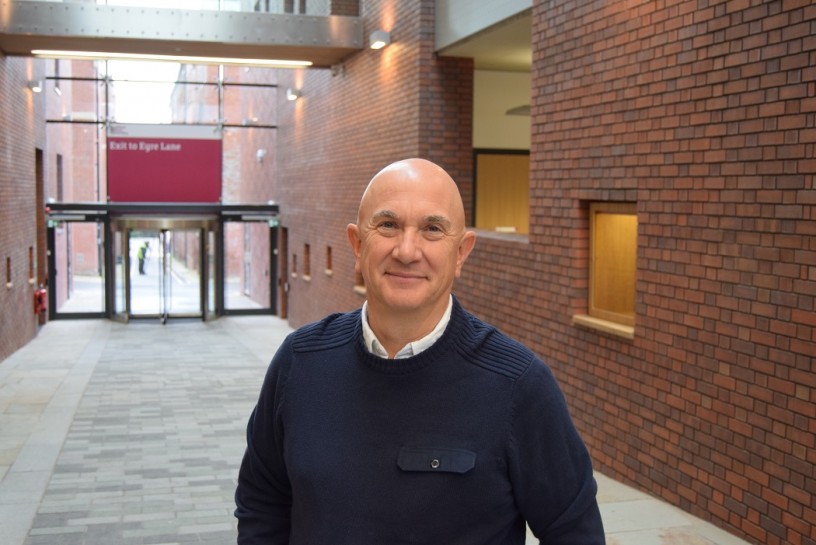In the spotlight:
Name: Dr Simon Brown
Location: Chesterfield
Occupation: Part-time consultant, physics lecturer, and Head of Enterprise Development at The National Centre for Entrepreneurship in Education (NCEE)
You are an influential individual within the enterprise education space. What does ‘enterprise education’ mean to you, and why do you think it’s important?
I’ve been doing my best to help young people achieve their potential since becoming a university lecturer in 1990. I have always tried to make learning fun and authentic. My philosophy is simple: if you are going to enjoy this life, then you have to make the most of every opportunity. Enterprise education for me is all about identifying opportunities and then having the skills and talents to exploit them.
Enterprise education is vital as, today, technology is changing the landscape faster than at any time in the past. Add to this the apocalyptical adjustments ahead – from climate change to Brexit and Trump – and who knows what might happen in the coming five years. While I don’t anticipate a Walking Dead scenario, the world as we know it is changing fast; and not in benign ways.
How did you first become involved with enterprise education?
I was a physics lecturer who was allowed to write his own degree, so I wrote one that I would have wanted to study. It became very popular and allowed me to create a curriculum that produced highly-employable graduates. I then designed programmes and formed a subject group of academics which I called “Enterprise and Technology” – because that was what we did: we used technology to develop enterprising graduates. I was then given bigger canvases on which to work and so I expanded to help fill the void.
What innovative teaching methods and practices do you use to introduce enterprise education to your students?
I don’t think I do anything innovative myself. I do what makes sense. After all, I come from a physics background where everything we teach has to be able to be tested and challenged. That is all I do when teaching: allow students to test hypotheses.
My greatest success has been the Venture Matrix. This allows students from any discipline to engage in highly-authentic learning and has just celebrated its 10th anniversary. So not all of my ideas have been totally mad!
How has enterprise education changed over the years, and how does it benefit students today?
Since we established EE UK (Enterprise Educators UK) in the mid-2000s, we have seen more and more educators engage with the area of enterprise education and bring their own talents to this field. The NCEE and their IEEP programme has formalised the development of educators and created an accredited route into the field. Andy Penaluna and the other fine colleagues working with the QAA have given us a set of standards and guidelines to help new programmes deliver the kind of pedagogy and learning we know is right for the future.

ELVIS comes to Swansea! Simon Brown and colleagues celebrate the launch of Andy Penaluna’s ‘Entrepreneurship Learning Visions in Swansea’ series.
Can enterprise be included at all stages of education, and within every subject? If yes, how? If no, why not?
Don’t think that what we do is new or special; it’s what good teachers have been doing for years. Andy Penaluna was doing this but called it ‘design’. Just do what you do with passion and take risks. Experiment! And let learners do the same. Don’t constrain learning with predetermined outcomes, but explore the magic that surrounds us. This can – and should – happen at every level.
How do you evaluate and measure the success of enterprise education generally, and your own teaching innovations specifically?
Set criteria that allow the students to show you what they can do, and what they have learnt; do not set up tests that measure failure. It is always a joy to see what students can achieve when they are allowed to exceed your expectations. Success in academia is still measured by formal assessments, but real success is when you see thriving alumni. Facebook does one thing for me: it lets me watch my old students (not in a creepy way!) and see them grow as people and become happy contributors to our society.
Your original teaching methods are heralded within the sector. What would you say to any institutions or academics who have still not included enterprise education within their curriculum?
I know it is hard to let go of what we are good at, but even one small step into the scary world of enterprise education is better than no steps at all. So, for the novice: look at the Enterprise Tool Kit from Enterprise Educators UK. Read through the examples and adapt the suggestions for your own classes. Then enjoy the buzz you get from the session and the students. Remember, the students will be as anxious as you if you jump too far too fast, so go at your own pace.
There’s an age-old debate about whether entrepreneurs are born or made. Can you weigh into this?
Enterprise education and entrepreneurship are not the same thing. Entrepreneurs are different people from the bulk of us. Don’t expect everybody to become an entrepreneur. However, everybody can be taught to think more entrepreneurially.

Simon Brown at the Enterprise Alliance launch at Houses of Parliament
For students who don’t want to be entrepreneurs, what other benefits does enterprise education provide?
It gives them the tools and the mindset to channel their natural passions. The chances of success will be – and are – enhanced.
Where do you hope to see enterprise education in five years’ time?
Totally mainstream. And things like this will be unnecessary.
What does a typical day look like in the world of Simon Brown?
I work from home in my office/study. I still adopt “office hours”, and even though most days I sit in front of my PC, I have the luxury of doing what I want, when I want – so after this interview I have to do the washing and ironing before my wife gets home, then I have some work to complete for the NCEE and Hallam!
And finally, Simon, tell us: if you were an animal, what would you be and why?
A cat – because they get fed; sleep all day, every day; and decide if they want to be sociable. People have worshipped cats in the past and they have not forgotten this. They do not feel obliged to do anything for anybody. I think I could be a cat!





Leave a Reply